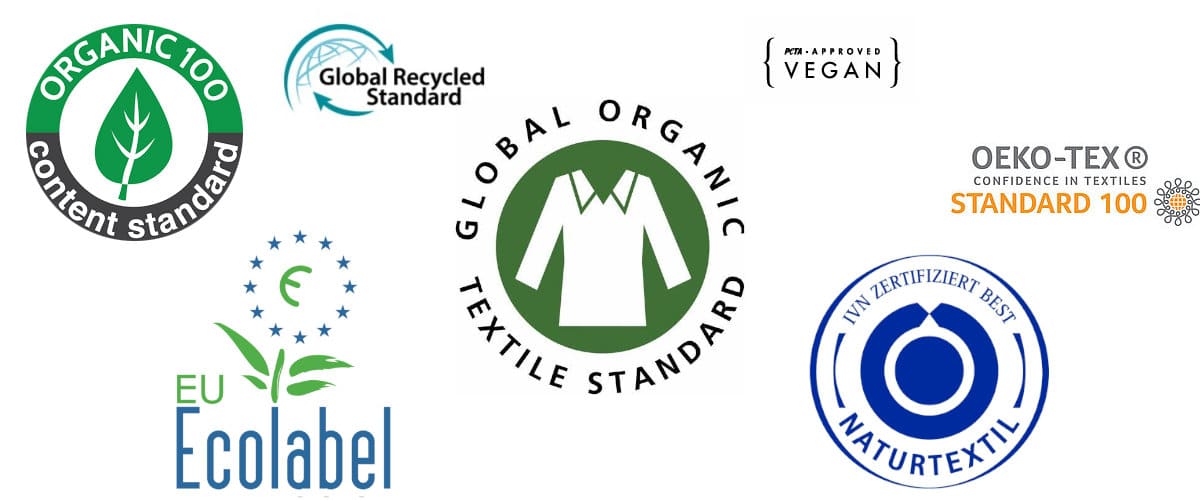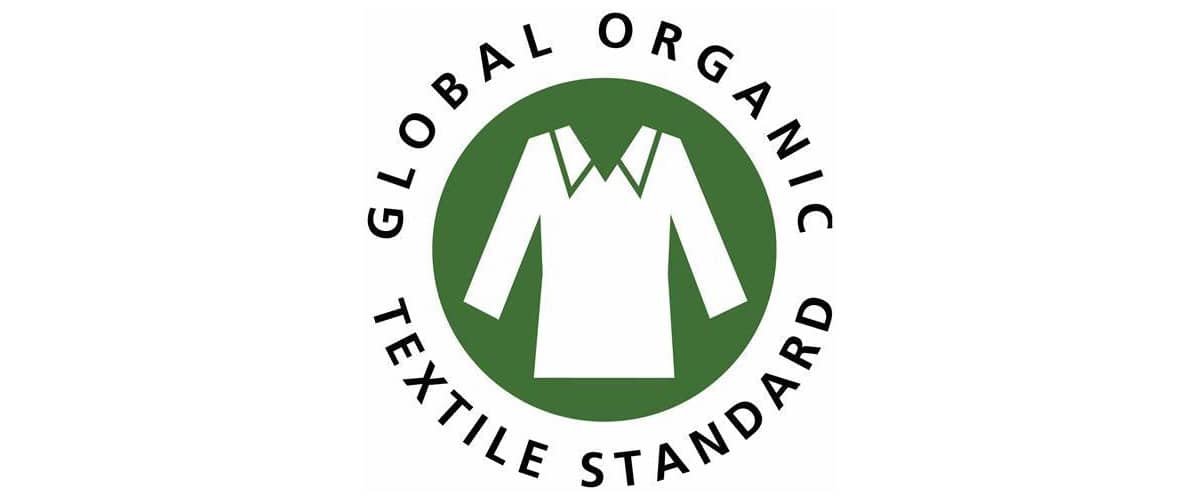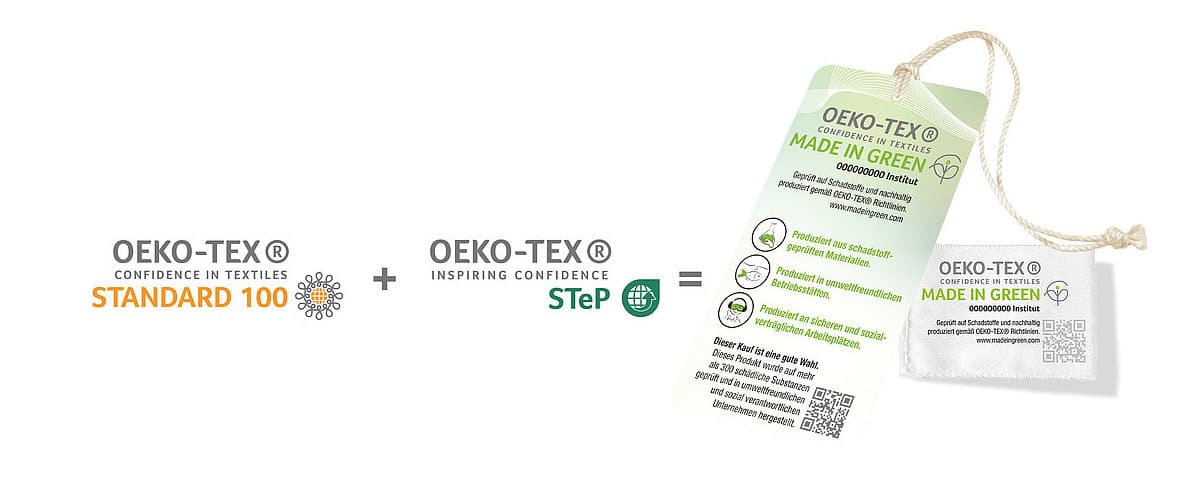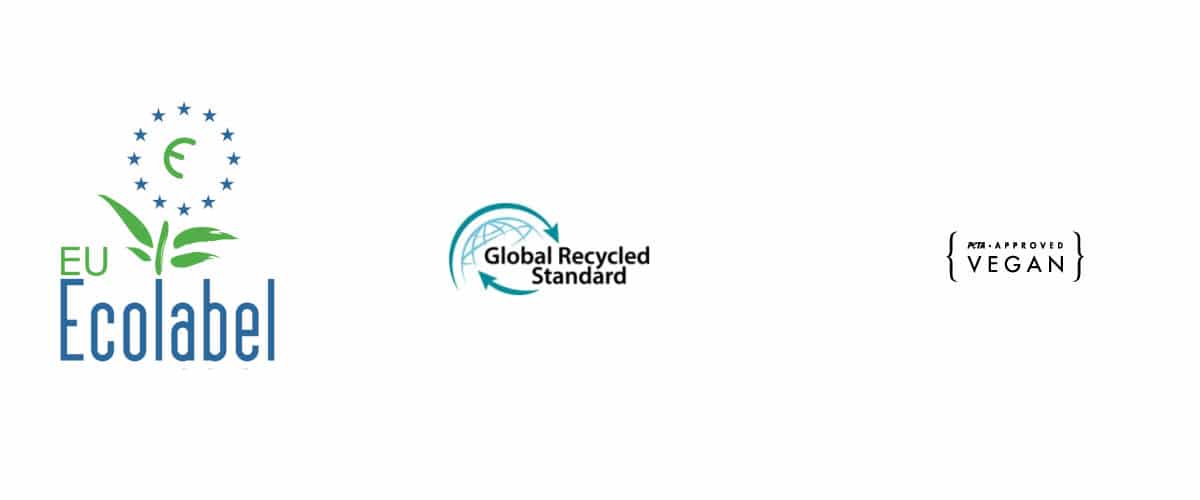
There are many of us who today pay attention to concept of sustainability in the world of fashion. A complex concept on which we try to shed some light by sharing with you the allied tissues of the sustainable fashion firms first, and the most important textile certifications later.
In the world there are a thousand and one sustainable and ecological textile certifications. It is impossible to know all of them, but identifying the most important ones is key so that they do not fool us. Of a voluntary nature and recognized at a European level, some, at an international level others, officially identify and certify that this particular garment is produced in a way that is respectful with the environment and / or with the workers.
GOTS (Global Organic Textile Standard)
GOTS is one of the most popular textile certifications. A international standard created by members of the textile industry and other organizations, with the collaboration of IFOAM (International Federation of Organic Agriculture Movements) to agree on harmonized criteria that could be applied worldwide.
To get this stamp the traceability of the garment is contemplated from the collection of raw materials to the moment of distribution and marketing. It has a GOTS seal of 95 - 100% organic and another of 70 - 94% organic. A textile product with a GOTs grade "organic" label must contain a minimum of 95% certified organic fibers. Those labeled "made with organic material", however, must only contain 70% certified organic fibers.
In addition, the GOTs seal certifies that there has been social commitment in each link of the production chain. To ensure that all these standards are met, all companies and manufacturers must undergo at least one annual inspection.
Organic Content Standard (OCS 100)
The Organic Content Standard (OCS) is based on the third party verification of the exact quantity of a certain material organically grown that has a final product. It applies to any non-food product that contains 95-100% organic matter.
Naturtextile IVN
It is a standard of the IVN (International Association of Natural Textile Industry). Covers all aspects of textile production regarding the fulfillment of ecological criteria and also social aspects. It is considered the strictest standard that currently exists for organic textile certification. It requires 100% of the fibers used to be certified ecological and it is also more restrictive than any other in terms of the substances that are prohibited or restricted.
Oeko-Tex
Developed by the OEKO-TEX Association, a research group and laboratories in Europe and Japan, it focuses on the limitation of certain harmful substances during manufacture and in verifying that these limitations are met.
- Standard 100. It certifies that textile products are free of substances harmful to health.
- Step. Sustainable Textile & Leather Production. It is a modular certification system for production facilities in the textile and leather industry. Its goal is to implement long-term environmentally friendly production processes, improve health and safety, and promote socially responsible working conditions.
- Made in Green. Each Made in Green tagged item can be tracked using a unique product ID or QR code. The label gives access to information about the production facilities where the item was produced, the stage of production to which the facility belongs, and the countries in which the manufacturing took place. It is the the only European certification that takes into account three areas of the production process: health, environment and human rights of workers.
EU Ecolabel
It is the European Union label that recognizes those products that guarantee a high level of environmental protection. For this, the entire process is taken into account, from the choice of raw materials to the waste that is generated. The EU Ecolabel promotes the circular economy by encouraging producers to generate less waste and CO2 during the manufacturing process. It also invites the development of products that are durable, easy to repair and recycle.
Global Recycle Standard
The Global Recycle Standard is another of the voluntary textile certifications. It aims to meet the needs of companies seeking check recycled content of its products and also social, environmental and chemical practices in the production of the products.
PETA Approved Vegan
AMSlab in collaboration with the PETA organization, has developed a control methodology to be able to verify the absence of animal products in clothing, footwear and accessories under the vegan standard. This is the "Vegan Product" seal, which allows consumers to quickly identify these types of items.



